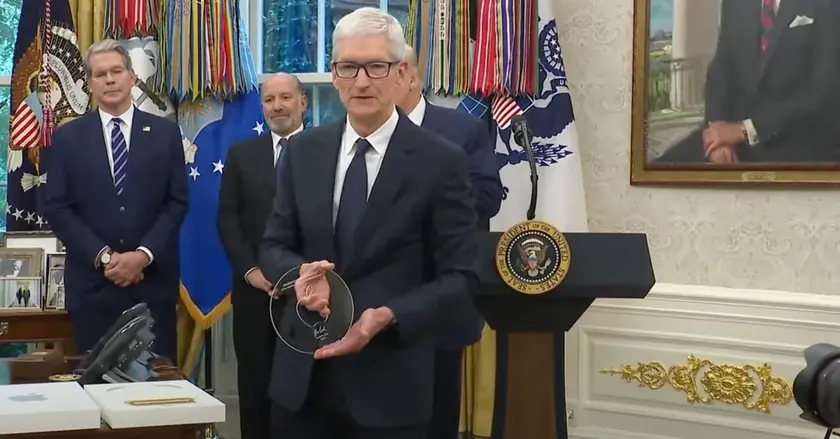T4K3.news
South Park satire targets Trump and tech culture
New episode Sickofancy riffs on AI hype and political power, with Randy Marsh and Silicon Valley chiefs in the spotlight.

The episode Sickofancy uses sharp humor to lampoon Trump, AI hype, and Silicon Valley leaders.
South Park targets Trump and tech chiefs in new episode
The third episode of the new season, Sickofancy, centers on Randy Marsh after an ICE raid on his Tegridy marijuana farm. He pivots to a tech image, consulting ChatGPT and rebranding as Techridy in a bid to win federal favor and expand sales. The episode also depicts Apple CEO Tim Cook and Meta CEO Mark Zuckerberg attempting to flatter Trump with lavish gifts as they line up outside the Oval Office, satire aimed at tech culture and political influence.
Other gags trace the same through line: Marsh longs for policy changes that would reclassify marijuana at the federal level, mirrors a real debate about scheduling, and notes that his company is now an AI powered platform for global solutions. Washington is shown under a heavy security presence, with world leaders and tech executives vying for Trump’s attention. The show revisits earlier jokes about Trump and his administration, pairing them with a critique of AI hype and corporate flattery. Audience metrics show the season’s second episode drew about 6.2 million global viewers, illustrating strong appetite for political comedy even amid controversy.
Key Takeaways
"We are no longer a marijuana farm, we are now an AI-powered marijuana platform for global solutions."
Randy Marsh’s rebranding line as a satirical jab at corporate AI branding.
"Pandering slop"
Marsh dismisses ChatGPT as a trivial tool in the episode.
"Right now there’s no place for Tegridy"
Marsh laments the fate of his cannabis brand after policy shifts.
"Satire can cut through noise and spark questions about power"
Editorial takeaway about the show's role in public discourse.
Satire here works as a barometer of public sentiment about power, technology, and policy. It uses exaggerated images to probe how tech leaders project virtue and how political figures respond to celebrity influence. The episode leans into the anxiety that AI promises can outpace regulation, while still signaling that pomp and gifts are far from harmless in shaping policy. This kind of content invites viewers to question who benefits from tech optimism and political spectacle.
At the same time, the heightened provocation carries risk. Provocative visuals and injections of real policy talk can polarize audiences or spark misinterpretation about actual federal decisions. The ratings boost indicates a ready audience for sharp, opinionated humor, but it also presses creators to balance daring satire with responsible messaging as political debate remains deeply personal for many viewers.
Highlights
- AI hype meets political theater
- Pandering slop
- Right now there’s no place for Tegridy
- Satire cuts through noise and asks hard questions about power
Political and social risk in satire
The episode targets political figures and policy topics, which can provoke backlash or misinterpretation among viewers. Provocative imagery and depictions of political power may draw criticism from various groups.
Satire can illuminate fault lines, not fix them.
Enjoyed this? Let your friends know!
Related News

South Park targets Tim Cook with gold gift to Trump

South Park episode review available

South Park mocks Trump in DC satire

South Park season premiere critiques Trump administration

New South Park episode boldly critiques Trump

Noem criticizes South Park as lazy and petty

South Park Episode Features Kristi Noem As Latest Target

South Park mocks Trump administration in latest episode
